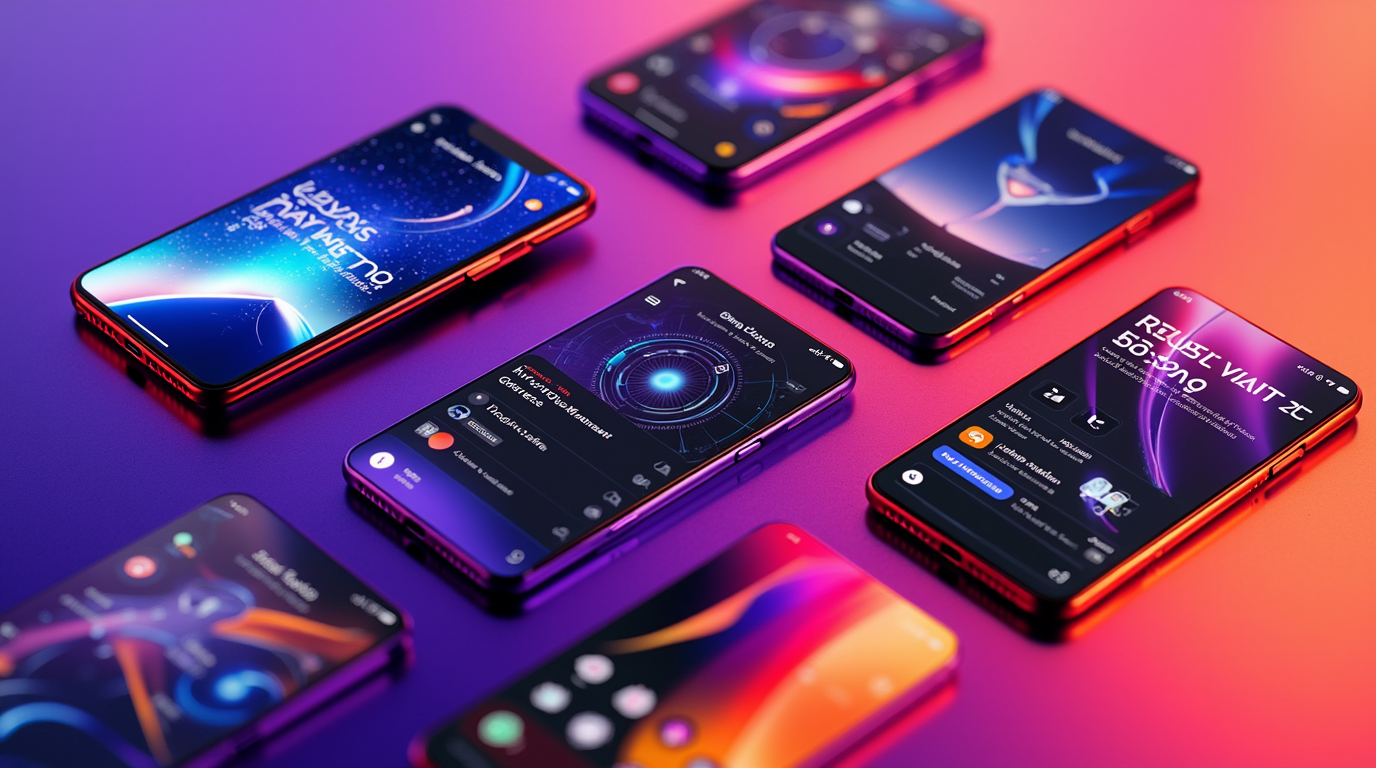The mobile app industry is poised for significant advancements as we approach 2025. Emerging technologies and evolving user expectations are set to redefine the landscape. Here are the top trends to watch:
1. Artificial Intelligence (AI) and Machine Learning (ML) Integration
AI and ML are transforming mobile apps by enabling personalized user experiences, predictive analytics, and intelligent automation. In 2025, we anticipate deeper integration of these technologies, allowing apps to adapt in real-time to user behavior, enhancing engagement and satisfaction.
2. 5G Technology Adoption
The rollout of 5G networks offers faster data transfer rates, lower latency, and improved connectivity. This advancement will enable more sophisticated mobile applications, including augmented reality (AR), virtual reality (VR), and high-definition streaming services, providing users with richer experiences.
3. Augmented Reality (AR) and Virtual Reality (VR) Integration
AR and VR technologies are set to revolutionize user interaction within mobile apps. From gaming to e-commerce, these immersive technologies will offer innovative ways to engage users, providing interactive and engaging experiences that blend the digital and physical worlds.
4. Internet of Things (IoT) Integration
The expansion of IoT devices presents opportunities for mobile apps to offer centralized control over various smart devices. In 2025, we expect a surge in apps that seamlessly integrate with IoT, enhancing user convenience and creating interconnected ecosystems.
5. Enhanced App Security Measures
With increasing cyber threats, app security remains a top priority. Developers will implement advanced security protocols, including biometric authentication and AI-driven threat detection, to protect user data and maintain trust.
6. Low-Code and No-Code Development Platforms
The demand for rapid app development is driving the adoption of low-code and no-code platforms. These tools enable faster deployment and easier updates, allowing businesses to respond swiftly to market changes and user feedback.
7. Progressive Web Apps (PWAs)
PWAs offer a blend of web and mobile app experiences, providing offline access, push notifications, and faster load times. As they become more prevalent, PWAs will offer users app-like experiences without the need for installation, enhancing accessibility and user engagement.
8. Personalized User Experiences
Leveraging AI and data analytics, apps will offer highly personalized content and recommendations, tailoring experiences to individual user preferences and behaviors, thereby increasing user satisfaction and retention.
9. Sustainable and Ethical App Development
As environmental concerns grow, developers will focus on creating energy-efficient apps and adopting sustainable development practices, aligning with the global push towards sustainability.
10. Cross-Platform Development
To reach a broader audience, developers will increasingly adopt cross-platform development frameworks, allowing apps to function seamlessly across multiple operating systems, reducing development time and costs.
The mobile app development landscape in 2025 will be characterized by technological innovation and a focus on enhanced user experiences. Staying abreast of these trends will be crucial for businesses and developers aiming to remain competitive in the dynamic mobile app market.




